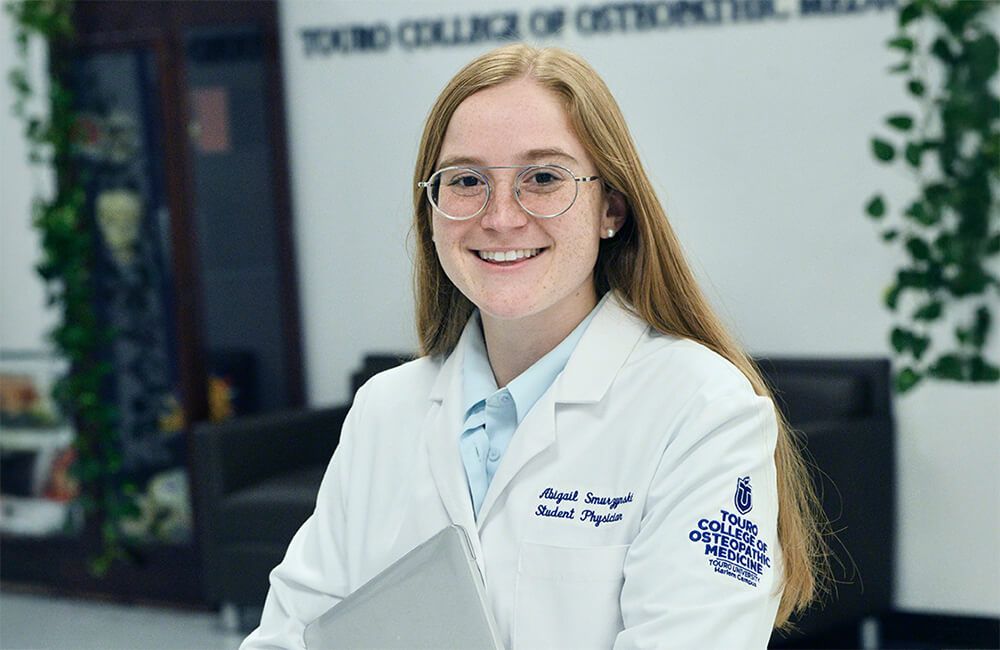The Key to Seeking Treatment for Substance Use Disorder
New Research by TouroCOM Student Indicates that Basic Advice, Treatment Info and Offers to Help Increase the Likelihood of Seeking Treatment

The vast majority of people who have a substance use disorder (SUD) never seek treatment. At most, 10% of adults with a drug or alcohol use disorder have entered any type of inpatient or outpatient treatment program, as reported by the SAMHSA.
But according to a new study by researchers at Touro College of Osteopathic Medicine in New York City, when a physician offers advice on cutting down on drinking or provides treatment information, people are significantly more likely to get help.
The study, conducted by medical student Abigail Smurzynski and faculty Jeffrey Gardere, PhD, and Olalekan Ogunsakin, M.D. at Touro, was published in the Cureus Journal of Medical Science. The Touro researchers wanted to examine the factors and characteristics of people who sought treatment for SUD to better understand what motivates some people to get treatment while most do not.
Looking at a large database, the researchers found that when a physician offered information on alcohol treatment, people were nearly five times as likely to receive treatment in that year. Likewise, when a doctor advised a patient to cut down on drinking, they were nearly four times more likely to get treatment. And if a doctor simply asked a patient if they had any drinking problems, they were two and a half times more likely to seek treatment.
“It appears that when a doctor has an open discussion about a potential drinking problem, it has a big impact on motivating a patient to seek help,” says Smurzynski. Interestingly, when doctors simply asked patients how much they drank — the standard screening tool in a medical visit — it had no impact on whether someone sought treatment.
While doctors ask about drinking habits about 83% of the time, they only offer more information about SUD or treatment about 10% of the time. One reason doctors don't bring up SUDs may be that they aren’t consistently trained about them, or they don’t realize how important their input is in motivating people to get help, the authors of the study wrote. “There’s a gap in physician education around substance use,” says Smurzynski .
She recommends better provider education, and continuing education on alcohol and drug treatment programs -- including information on motivational interviewing, medications, out-patient or inpatient treatment, specific harm reduction strategies, and 12-step programs.
“Through improved education efforts, we can make physicians more comfortable in addressing SUD during the doctor-patient interaction and collectively make a positive difference for patients with SUD,” the authors wrote.

